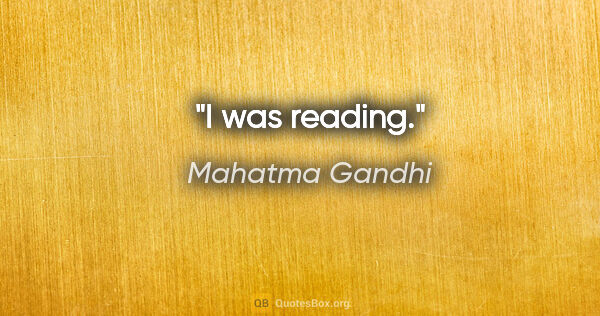Reading Quotes (page 114)
Two things put me in the spirit to give. One is that I have come to think of everyone with whom I come into contast as a patient in the emergency room. I see a lot of gaping wounds and dazed expressions. Or, as Marianne Moore put it, "The world's an orphan's home." And this feels more true than almost anything else I know. But so many of us can be soothed by writing: think of how many times you have opened a book, read one line, and said, "Yes!" And I want to give people that feeling, too, of...
Anne Lamott

The reader! You, dogged, uninsultable, print-oriented bastard, it's you I'm addressing, who else, from inside this monstrous fiction. You've read me this far, then? Even this far? For what discreditable motive? How is it you don't go to a movie, watch TV, stare at a wall, play tennis with a friend, make amorous advances to the person who comes to your mind when I speak of amorous advances? Can nothing surfeit, saturate you, turn you off? Where's your shame?
John Barth
They understood that. They all understood it. This is not the same as comprehension, but it was good enough. When you stop to think, the whole idea of comprehension has a faintly archaic taste, like the sound of forgotten tongues or a look into a Victorian camera obscura. We Americans are much higher on simple understanding. It makes it easier to read the billboards when you're heading into town on the expressway at plus-fifty. To comprehend, the mental jaws have to gape wide enough to make...
Stephen King
The main qualities that had earned him this universal respect in the service were, first, an extreme indulgence towards people, based on his awareness of his own shortcomings; second, a perfect liberalism, not the sort he read about in the newspapers, but the sort he had in his blood, which made him treat all people, whatever their rank or status, in a perfectly equal and identical way; and, third - most important - a perfect indifference to the business he was occupied with, owing to which...
Leo Tolstoy

Suppose one reads a story of filthy atrocities in the paper. Then suppose that something turns up suggesting that the story might not be quite true, or not quite so bad as it was made out. Is one's first feeling, "Thank God, even they aren't quite so bad as that,' or is it a feeling of disappointment, and even a determination to cling to the first story for the sheer pleasure of thinking your enemies as bad as possible? If it is the second then it is, I am afraid, the first step in a process...
C. S. Lewis

